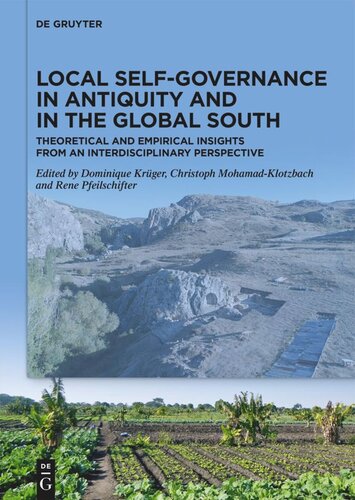

Most ebook files are in PDF format, so you can easily read them using various software such as Foxit Reader or directly on the Google Chrome browser.
Some ebook files are released by publishers in other formats such as .awz, .mobi, .epub, .fb2, etc. You may need to install specific software to read these formats on mobile/PC, such as Calibre.
Please read the tutorial at this link: https://ebookbell.com/faq
We offer FREE conversion to the popular formats you request; however, this may take some time. Therefore, right after payment, please email us, and we will try to provide the service as quickly as possible.
For some exceptional file formats or broken links (if any), please refrain from opening any disputes. Instead, email us first, and we will try to assist within a maximum of 6 hours.
EbookBell Team

5.0
80 reviewsOpen Access
The nucleus of society is situated at the local level: in the village, the neighborhood, the city district. This is where a community first develops collective rules that are intended to ensure its continued existence. The contributors look at such configurations in geographical areas and time periods that lie outside of the modern Western world with its particular development of society and statehood: in Antiquity and in the Global South of the present. Here states tend to be weak, with obvious challenges and opportunities for local communities. How does governance in this context work?
Scholars from various disciplines (Classics, Theology, Political Science, Sociology, Social Anthropology, Human Geography, Sinology) analyze different kinds of local arrangements in case studies, and they do so with a comparative approach. The sixteen papers examine the scope and spatial contingency of forms of self-governance; its legitimization and the collective identity of the groups behind them; the relations to different levels of state governance as well as to other local groups. Overall, this volume makes an interdisciplinary contribution to a better understanding of fundamental elements of local governance and statehood.